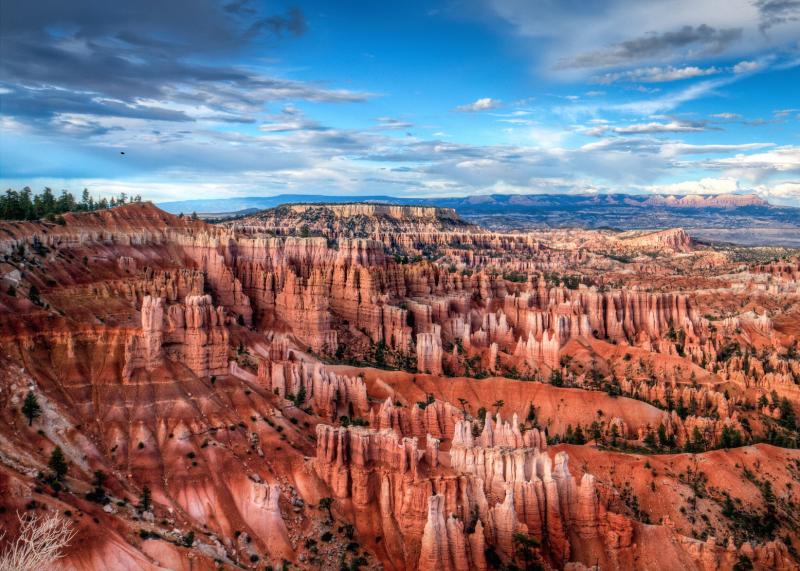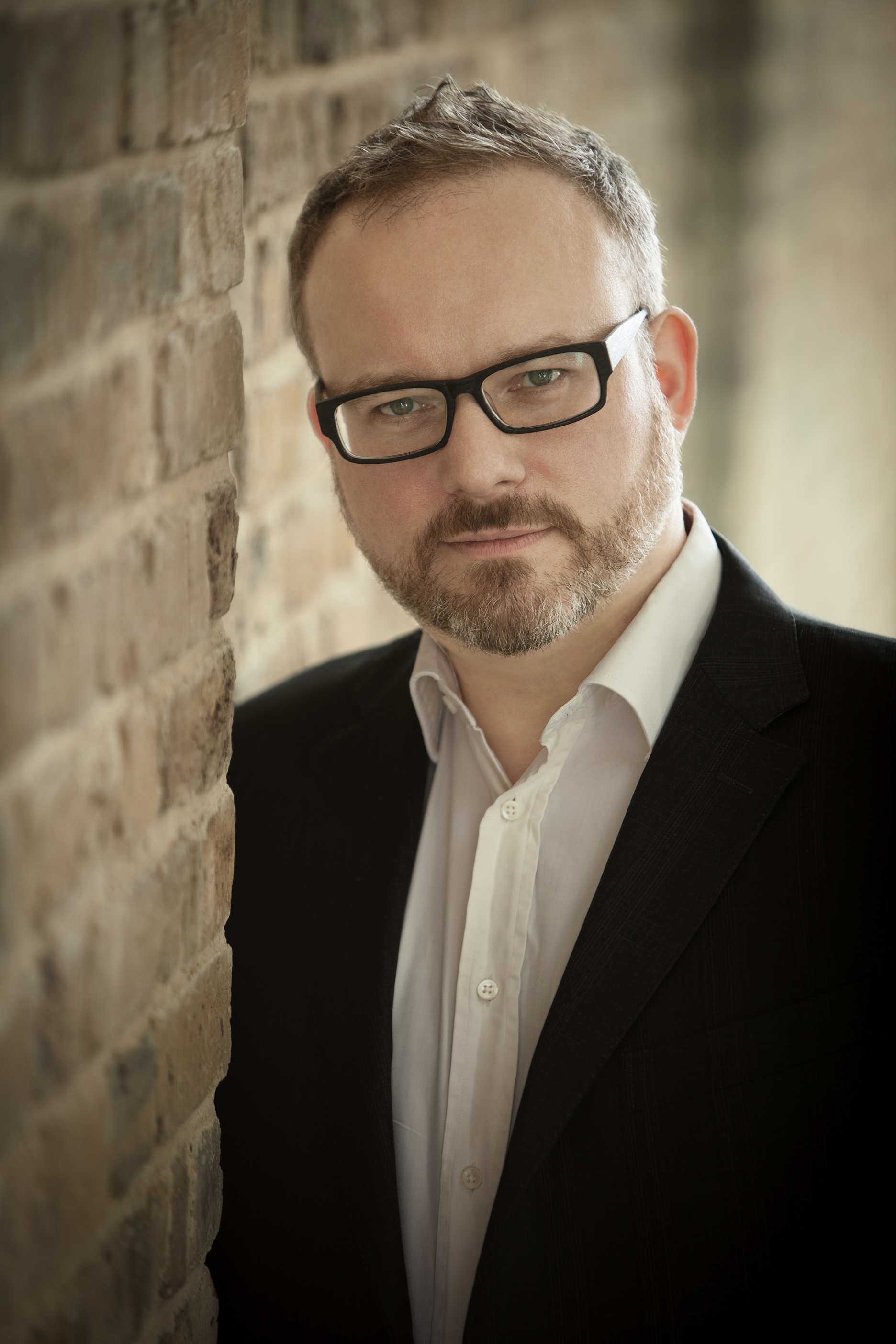Prom 13: Des canyons aux étoiles , BBCSO, Oramo review – cursory contemplations of earth and sky | reviews, news & interviews
Prom 13: Des canyons aux étoiles..., BBCSO, Oramo review – cursory contemplations of earth and sky
Prom 13: Des canyons aux étoiles..., BBCSO, Oramo review – cursory contemplations of earth and sky
All aboard the TGV, destination infinity

Messiaen’s language of juxtaposition over development was always susceptible to the “greatest hits” phenomenon that began to suffuse his music with contented wonder during the 1970s. While younger colleagues were throwing toys out of the pram and marbles at walls during the late 1960s, he was putting heart and soul into a synoptic concert rite – part concerto, part cantata, all-consuming – based on the Transfiguration of Jesus.
Pieced together over four years at the beginning of the 1970s, Des canyons aux étoiles… gathers up elements of the Turangalîla Symphony’s form and the mystical spirituality of La Transfiguration with the technique of rewriting birdsong as a kind of piano concerto which he had refined during the 1950s and '60s with pieces such as the Reveil des Oiseaux (Dawn Chorus) and Sept Haikai (Seven Haikus). Speaking before this Prom, Sakari Oramo summed up the result as “An interstellar discussion between man and his maker.”
Space and time are always written into Messiaen’s scores, but never more so than in Des canyons, and into its ambition to connect the vastness of an earthly desert with the vastness of the celestial bodies and beyond them, the infinite realm of heaven. In the event, this Prom supplied one but not the other. Standing up and playing the solo-horn Appel Interstellaire from memory, Martin Owen reached the farthest corners of the Royal Albert Hall and projected into it with the kind of instrumental and spiritual theatre that makes the movement Messiaen’s great Stockhausen moment, improbably illustrating within six minutes our place within the cosmos and our ambitions to conquer it (a recurring theme of this year’s Proms).
 Owen could profitably have allowed more space for his interstellar summons to bounce around the hall and come back to him. But then, so could everyone else. The performance as a whole was marked by a brisk and sometimes perfunctory efficiency that brought it home in well under an hour and a half – Des canyons needn’t seem too long at 100 minutes – and failed to hold the collective attention of a decent-sized audience, at least a hundred of whom drifted away during its course.
Owen could profitably have allowed more space for his interstellar summons to bounce around the hall and come back to him. But then, so could everyone else. The performance as a whole was marked by a brisk and sometimes perfunctory efficiency that brought it home in well under an hour and a half – Des canyons needn’t seem too long at 100 minutes – and failed to hold the collective attention of a decent-sized audience, at least a hundred of whom drifted away during its course.
As in Turangalîla, Messiaen places his movement of peace and recuperation around halfway through, but this evocation of Aldebaran was badly rushed – almost double the speed I’ve sometimes heard before – and ill balanced, with tuned percussion smothering the strings’ tender chorale in sonic tinsel. Why the hurry? The first five movements of the cycle’s first part were run together without a pause, which may have succeeded in eliminating applause between them but only at the cost of confusing and alienating audience members unfamiliar with the work (at least the ones I talked to afterwards).
More dynamic sensitivity, too, would have lent variety to Nicolas Hodges’s account of the testing piano part. Perhaps rehearsal time was an issue as it so often is during the Proms, at least for the resident ensemble. Extravagance and excess belong to Des canyons as much as any other work of Messiaen’s, but Oramo and Hodges (pictured above by Eric Richmond) were not in the mood to indulge him, or us: the lasting impression was of a guided tour near closing time, and an opportunity missed.
rating
Explore topics
Share this article
Add comment
The future of Arts Journalism
You can stop theartsdesk.com closing!
We urgently need financing to survive. Our fundraising drive has thus far raised £49,000 but we need to reach £100,000 or we will be forced to close. Please contribute here: https://gofund.me/c3f6033d
And if you can forward this information to anyone who might assist, we’d be grateful.

Subscribe to theartsdesk.com
Thank you for continuing to read our work on theartsdesk.com. For unlimited access to every article in its entirety, including our archive of more than 15,000 pieces, we're asking for £5 per month or £40 per year. We feel it's a very good deal, and hope you do too.
To take a subscription now simply click here.
And if you're looking for that extra gift for a friend or family member, why not treat them to a theartsdesk.com gift subscription?
more Classical music
 Hallé John Adams festival, Bridgewater Hall / RNCM, Manchester review - standing ovations for today's music
From 1980 to 2025 with the West Coast’s pied piper and his eager following
Hallé John Adams festival, Bridgewater Hall / RNCM, Manchester review - standing ovations for today's music
From 1980 to 2025 with the West Coast’s pied piper and his eager following
 Kaploukhii, Greenwich Chamber Orchestra, Cutts, St James's Piccadilly review - promising young pianist
A robust and assertive Beethoven concerto suggests a player to follow
Kaploukhii, Greenwich Chamber Orchestra, Cutts, St James's Piccadilly review - promising young pianist
A robust and assertive Beethoven concerto suggests a player to follow
 Robin Holloway: Music's Odyssey review - lessons in composition
Broad and idiosyncratic survey of classical music is insightful but slightly indigestible
Robin Holloway: Music's Odyssey review - lessons in composition
Broad and idiosyncratic survey of classical music is insightful but slightly indigestible
 Classical CDs: Wolf-pelts, clowns and social realism
British ballet scores, 19th century cello works and contemporary piano etudes
Classical CDs: Wolf-pelts, clowns and social realism
British ballet scores, 19th century cello works and contemporary piano etudes
 Bizet in 150th anniversary year: rich and rare French offerings from Palazzetto Bru Zane
Specialists in French romantic music unveil a treasure trove both live and on disc
Bizet in 150th anniversary year: rich and rare French offerings from Palazzetto Bru Zane
Specialists in French romantic music unveil a treasure trove both live and on disc
 Scottish Chamber Orchestra, Ibragimova, Queen’s Hall, Edinburgh review - rarities, novelties and drumrolls
A pity the SCO didn't pick a better showcase for a shining guest artist
Scottish Chamber Orchestra, Ibragimova, Queen’s Hall, Edinburgh review - rarities, novelties and drumrolls
A pity the SCO didn't pick a better showcase for a shining guest artist
 Kilsby, Parkes, Sinfonia of London, Wilson, Barbican review - string things zing and sing in expert hands
British masterpieces for strings plus other-worldly tenor and horn - and a muscular rarity
Kilsby, Parkes, Sinfonia of London, Wilson, Barbican review - string things zing and sing in expert hands
British masterpieces for strings plus other-worldly tenor and horn - and a muscular rarity
 From Historical to Hip-Hop, Classically Black Music Festival, Kings Place review - a cluster of impressive stars for the future
From quasi-Mozartian elegance to the gritty humour of a kitchen inspection
From Historical to Hip-Hop, Classically Black Music Festival, Kings Place review - a cluster of impressive stars for the future
From quasi-Mozartian elegance to the gritty humour of a kitchen inspection
 Shibe, LSO, Adès, Barbican review - gaudy and glorious new music alongside serene Sibelius
Adès’s passion makes persuasive case for the music he loves, both new and old
Shibe, LSO, Adès, Barbican review - gaudy and glorious new music alongside serene Sibelius
Adès’s passion makes persuasive case for the music he loves, both new and old
 Anja Mittermüller, Richard Fu, Wigmore Hall review - a glorious hall debut
The Austrian mezzo shines - at the age of 22
Anja Mittermüller, Richard Fu, Wigmore Hall review - a glorious hall debut
The Austrian mezzo shines - at the age of 22
 First Person: clarinettist Oliver Pashley on the new horizons of The Hermes Experiment's latest album
Compositions by members of this unusual quartet feature for the first time
First Person: clarinettist Oliver Pashley on the new horizons of The Hermes Experiment's latest album
Compositions by members of this unusual quartet feature for the first time

Comments
Though I agree there were